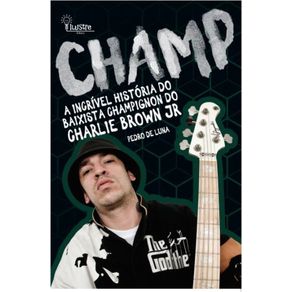-
DEPARTAMENTOS
- ANIMAIS DE ESTIMAÇÃO
- ARTES
- AUTO AJUDA
-
BEM ESTAR E LAZER
-
CATEGORIAS
-
-
CULINÁRIA E GASTRONOMIA
-
CATEGORIAS
-
-
ESPORTES
-
CATEGORIAS
-
- INFANTIL
-
RELIGIÃO
-
CATEGORIAS
-
- ADMINISTRAÇÃO E NEGÓCIOS
-
CIÊNCIAS BIOLÓGICAS E NATURAIS
-
CATEGORIAS
-
- DIREITO
- ECONOMIA
-
MEDICINA
-
CATEGORIAS
-
-
TODOS DEPARTAMENTOS
-
INTERESSE GERAL
-
LIVROS TÉCNICOS
-
- DISCIPLINAS
- ACESSÓRIOS
- FORMATURA
- PAPELARIA
Cód:
491_9781629174488
Feud
Autor:
Editora:
Código:
491_9781629174488
Vendido e entregue por Um Livro
Back in the 1970s on the poverty stricken streets of the Bronx, New York, amongst the African-American community there was a rise in the popularity of the 'block party'. People like the Ghetto Brothers would plug their amps between the lamp posts. These parties would often have a DJ playing soul or funk music, where the percussive 'break' in the songs would be isolated, a common feature of Jamaican dub music and a technique introduced by the Caribbean immigrants in the area, including DJ Kool Herc, often credited as one of the founding fathers of hip hop, as well as Afrika Bambaataa and the music collective Zulu Nation. Coupled with the advent of cheaper, more accessible music editing and sampling equipment, there was an emergence of a new kind of sound and a vocal called rapping or 'emceeing'. The East Coast remained the forefront of the Hip-Hop movement throughout the 80s and the early 90s, with legends such as A Tribe Called Quest, Run DMC, LL Cool J, Salt and Pepa to name a few, emerging from the New York scene. In the early 90s what started as an outlet for the youth of the impoverished Bronx had transformed in what was known as the 'Golden Age' of Hip-Hop to shorter, more radio-friendly tracks, which were at the same time innovative and challenging the limits. Often, the tracks featured eclectic sampling (think of De La Soul) and explored themes of afrocentrism, identity (Public Enemy had directly challenging, aggressive lyrics) and served to give the black community a voice due to the relatability of the lyrical content and how mainstream it was becoming. The term 'Golden Age' was used to describe this period because of fresh, new and innovative every release seemed to be. However, what started as a movement born out of social discontent and progression was soon manipulated into a tool for record companies utilizing conflict and controversy to make more money. This is a history of a movement that ch
Veja mais

































